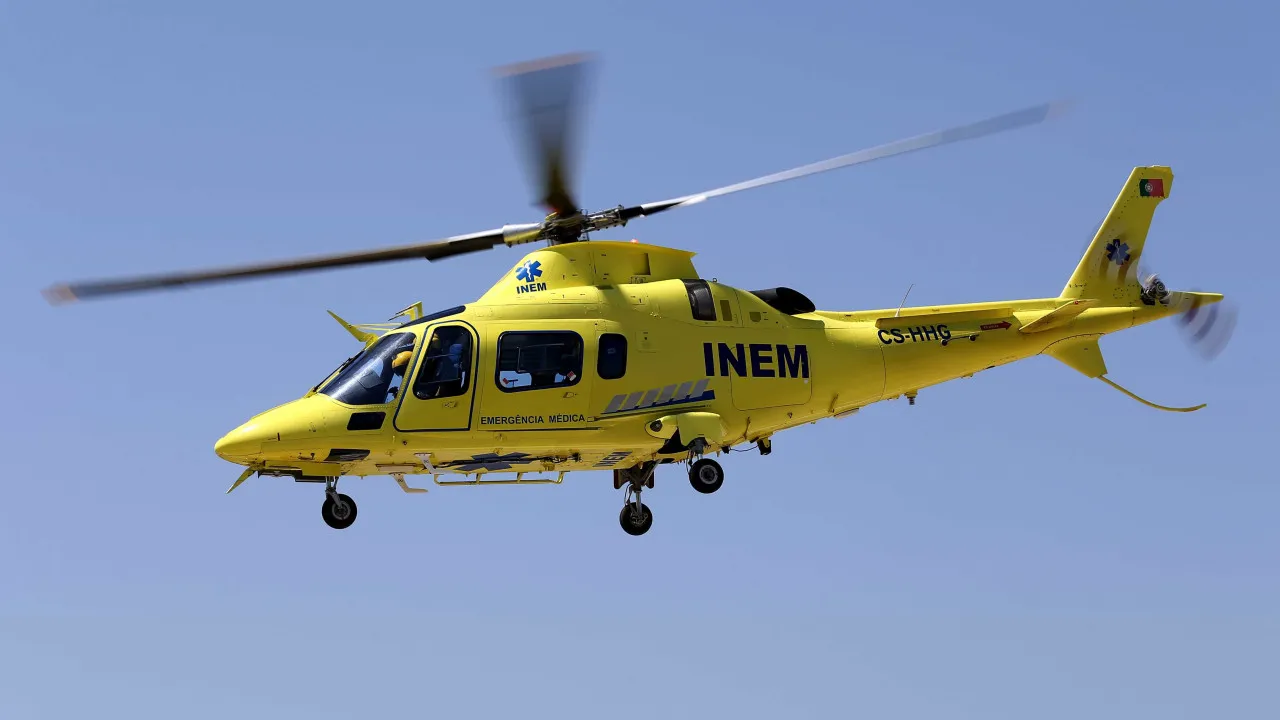
The Inspeção-Geral de Finanças (IGF) has found significant issues with the oversight of helicopter flight hours by INEM, increasing the risk of extra costs for the state, as detailed in an analysis of the 2021-2024 period.
An audit covering the tenure of Luís Meira, who resigned in July 2024 after an earlier direct adjustment for helicopter transport services, identified a lack of “established mechanisms for automatic or alternative recording and control of the actual flight hours for each aircraft.”
This audit was requested by the Health Minister and will be crucial for the committee working on INEM’s restructuring and the parliamentary inquiry commission set to start in September.
The report shows that INEM records the activation time of air transport through the Centro Operacional de Doentes Urgentes (CODU) but relies on the service provider for landing time information.
This reveals “vulnerabilities in monitoring and controlling the fulfillment of externally contracted services,” it notes.
The assessment focuses on previous emergency air transport contracts undertaken via direct adjustment. The most recent, valued at 12 million euros, was in effect until the end of June this year.
The IGF states that flight time records “are made solely by the co-contractor” for payment purposes, with INEM lacking systematic or alternative controls over actual flight hours.
“The absence of effective and reliable control by INEM over the exact contractual flight hours poses risks that may result in financial losses for the public treasury,” the document says, stressing the high service cost (“the contractual value per minute of flight is approximately 150 euros”).
Additionally, there were instances of flights “conducted without a medical team” contrary to the defined requirements.
Moreover, there is no “clear evidence” of the contract manager fulfilling obligations to develop performance indicators for measuring various levels of the co-contractor’s performance.
The ongoing lack of an IT system for precise control remains problematic, as current pre-contractual procedures (awarded to Gulf Med for 77.4 million euros until 2030) also exclude such a system for verifying helicopter flight take-off and landing hours.
In its response, INEM indicated efforts to “continue raising contract managers’ awareness” about the need to strengthen “material and financial oversight of contracts,” along with creating a multidisciplinary support team for the contract manager.
The IGF also found control failures in managing the terrestrial fleet, which includes the fire brigades and Portuguese Red Cross, with whom INEM has agreements for pre-hospital emergency care.
It points out that “within the PEM/PR [Medical Emergency Posts/Reserve Posts] protocols, no mechanisms exist to clearly identify and determine contractual non-compliance situations and the possible application of stipulated penalties.”
Additionally, the “limited number” of authorial and patient transport monitoring actions “poses significant risks concerning the compliance and quality of the process,” highlighting the risk of “dual funding or overfunding” of voluntary fire brigade humanitarian associations.




